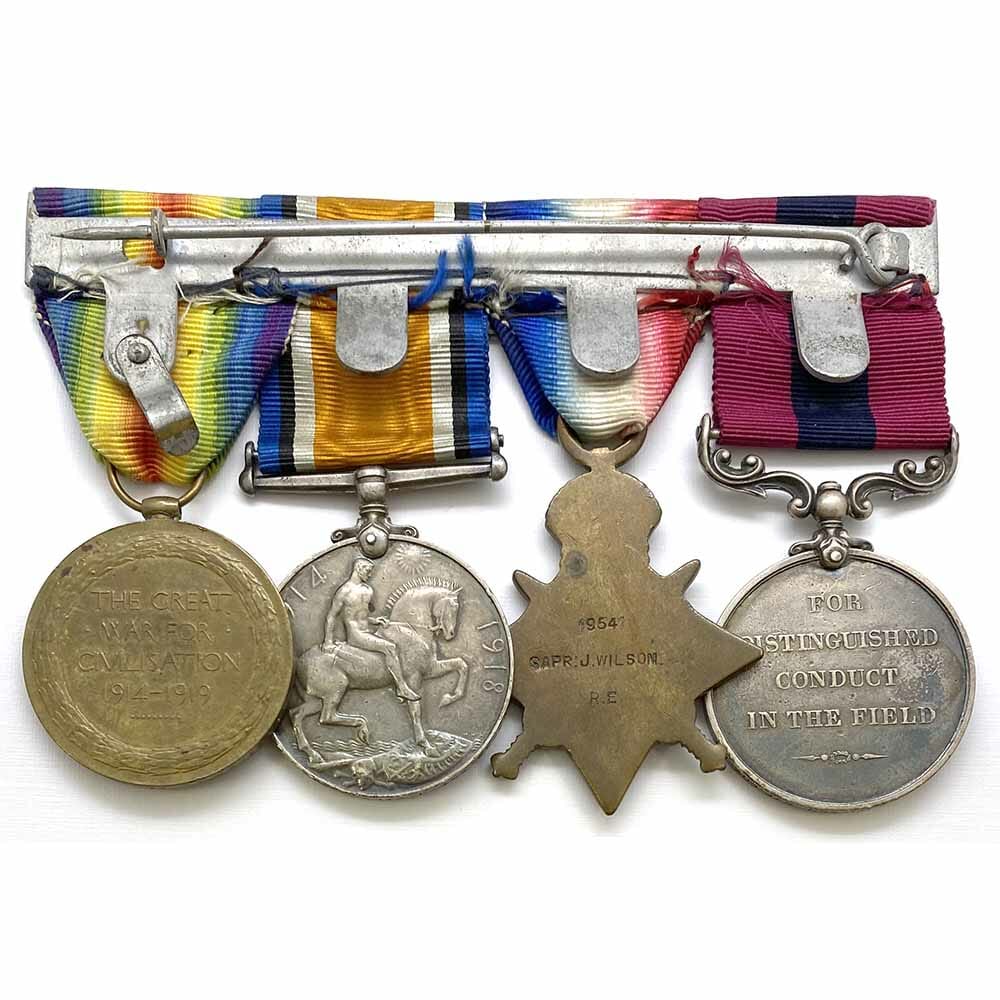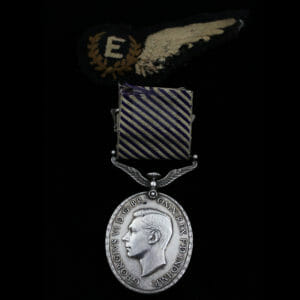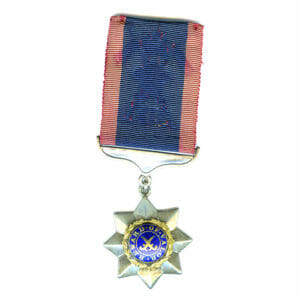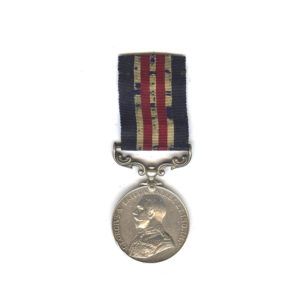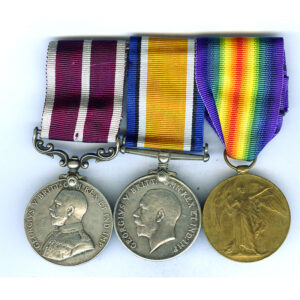Description
Distinguished Conduct Medal, GV, 1914 Star with original “5th Aug – 22nd Nov 1914” clasp, British War and Victory Medal, with copy MID leaf, Sergeant J. Wilson, Royal Engineers and Royal Flying Corps, an excellent 1914 award for Polygon Wood, ran the gauntlet of enemy machine guns to deliver an important message.
DCM announced in the London Gazette, 1st January 1915, with citation, 16th January 1915:
“For gallant conduct on 11th November in bringing an urgent message over very dangerous ground, under heavy rifle and machine gun fire and subsequently performing a similarly dangerous duty.”
Also mentioned in despatches, London Gazette, 22nd June 1915 in Field Marshal French’s Despatch of 31st May 1915.
DCM Officially impressed: “19541 Sapr J. Wilson. 5/F. Coy. R.E.”
1914 star impressed: “19541 Sapr: J. Wilson R.E.”
BWM and Victory impressed: “17023 Sgt. J. Wilson. R.F.C.”
An award for a brave and daring messenger for 11th November 1914 at Polygon Wood, with the 5th Field Company Royal Engineer.
When the force of the 15 men of the Royal Engineers and 20-30 Infantry of the Connaught Rangers were trapped in Polygon Wood, having taken heavy casualties and had a number of their officers shot and lying dead or wounded. An officer of the Connaught Rangers requested a volunteer to cross to the main line and ask for new orders.
“19541 Sapper T. Wilson offered to go, and, in spite of heavy machine-gun fire he got the message through, falling once to avoid the machine gun fire which followed him. He brought back an order to advance on the right of the line, joining on to the Oxfords, who were now advancing through the wood and driving the Germans back.
The whole line now advanced, shooting and bayoneting from 90 to 100 of the enemy outside the wood, and the R.E. and some of the infantry took up a position in the original support trench, from the right of which a good fire was kept up into the retreating Germans. This line was occupied only for a few minutes. A further advance was made, chiefly by the R.E. and there seems to have been some lack of cohesion.”
John Wilson was born during 1887 in Burnley, Lancashire.
In civilian life he was an Engine Fitter and had been a serving member of the Royal Engineers Special Reserve since 1909.
As a Special Reservist he was mobilised immediately and embarked for France on 15th August 1914. The “Old Contemptibles” fought in the very first battles of the war being engaged near Rouen on 20th August 1914 before taking part in the Battle and Subsequent Retreat from Mons from 23rd August until 5th September. The 5th Field Company R.E. saw an exceptional amount of action in the early part of the war including the fight at Polygon Wood where he would earn his DCM.
On 29th October 1915 he was transferred to the Royal Flying Corps, having been an Engine Fitter in peacetime, he quickly settled in as an Aeroplane Fitter, he saw the following appointments through the war up to Chief Mechanic:
2nd Airman, 29th October 1915
1st Airman, 1st July 1916
Acting Corporal, 25th April 1917
Corporal, 1st June 1917
Sergeant 1st June 1917
Acting Flight Sergeant, 1st March 1918
Sergeant Mechanic AE Fitter, 1st April 1918 (Formation of RAF)
Chief Mechanic, 1st July 1918
Reclassified as Flight Sergeant AE Fitter, 1st January 1919.
Served until 7th June 1921, at the end of his terms of engagement.

